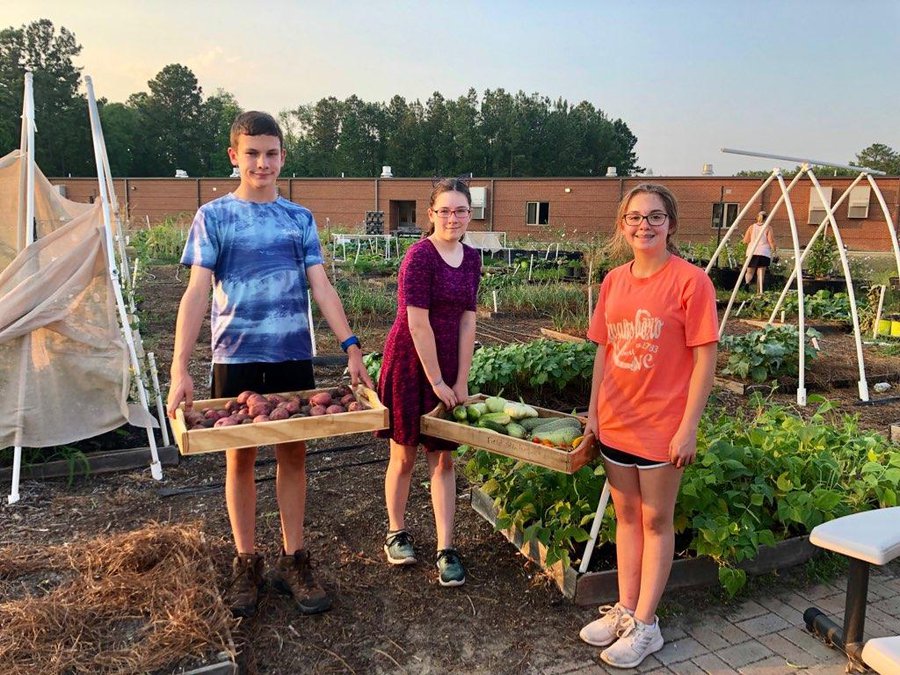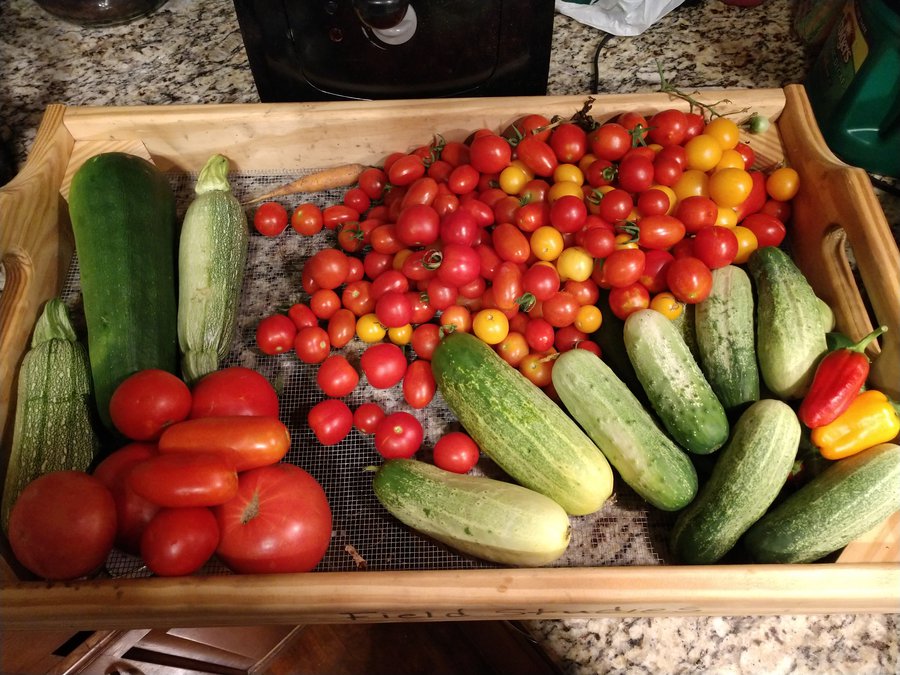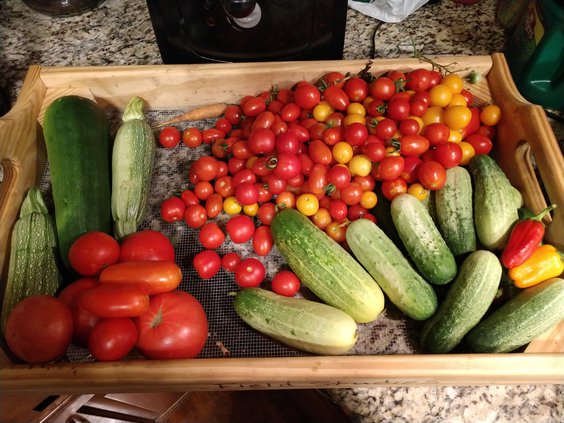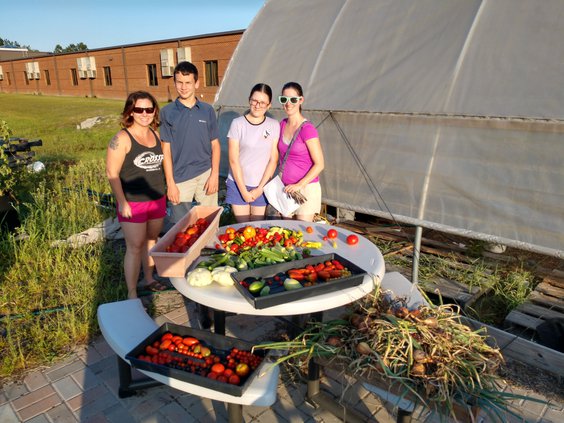Richmond Hill Middle School teachers Bob Hodgdon and Tori Morse and a number of parents and students wrapped up another round of research in the Field Studies Research Garden located behind Richmond Hill Middle School.
It was a tough season.The crew battled a five-week late starting date, stifling heat and no rain in May followed by a period of heavy rain then back to the heat. In addition to the weather, the research team also battled a constant assault by weeds.
Hodgdon elected not to spray with an herbicide until the picking season was over resulting in areas with significant weed cover, mainly along the edges of the garden, the unused raised beds themselves, and in the walkway. Weeding during the growing season focused on the active beds and containers. During the first two seasons, students, staff, and parents conducted research on which varieties of popular garden crops grew well in our hot, humid coastal Georgia micro climate.
The conditions on the coast provide the perfect conditions for many types of fungal, bacterial, and viral plant diseases and insect infestations.
In an open garden with little shade, crops also suffer from the intensity of the sun. The Field Studies researchers, however, wanted to demonstrate that many crops could be grown in our region successfully using the raised bed and container garden model. The goal of the group is to provide the community with data that will encourage families to engage in some small scale, backyard gardening.
The first two years of data focused on crops that would do well in the raised bed model.
The roughly 6,000-square-foot Research Garden is the largest school-based agricultural research garden in the state consisting of 48 raised beds, over 30 large containers with native blueberry bushes, and this year over 200 containers ranging from two gallons to 20 gallons.
The research this year focused on container gardening though the beds were planted as well. A lot was learned from these trials --mainly that most crops do not do well in containers during the spring and summer because the soil temperatures and drainage issues associated with containers stress the plant and promote stem rot and other issues.
This spring/summer (from the containers and beds though not all data was collected from beds), the research group produced over 100 summer squash, 300 potatoes, nearly 400 cucumbers, and over 5100 tomatoes (mostly cherries) with many plants still producing. They also planted smaller amounts of crops such as onions (50 bulbs), green beans (500 pods), summer squash (100 fruit), and thick beds of Swiss Chard, lettuce, carrots, and kale that were planted in the late fall and matured in the spring.
Last year’s fall crops also included broccoli and an assortment of turnip and mustard greens.
Okra is still going strong producing dozens of pods per week and a new addition, Malabar climbing “spinach” also seems not bothered by the heat. Hodgdon hopes to have a “garden work day” in August to get the garden ready for a fall planting. A different group of students will research and develop a fall planting plan beginning in August.
The Research Garden was built and is maintained almost entirely through fundraising efforts such as grants, community fundraisers, and corporate giving. The greenhouse was donated by a subsidiary of Rayonier, the garden itself was built by PreferredMaterials, Inc., and funding for the vast amount of materials needed to maintain the garden has included money from the Richmond Hill Rotary Club and about a dozen national organizations through equipment, seed, and grant donations. Most of the produce from the garden is consumed by the researchers.
Some excess produce was sold and some donated. Later this fall, a complete report will be submitted on the Richmond Hill Middle School website and Facebook site identifying the varieties of crops that did best in the raised-bed and container model.





